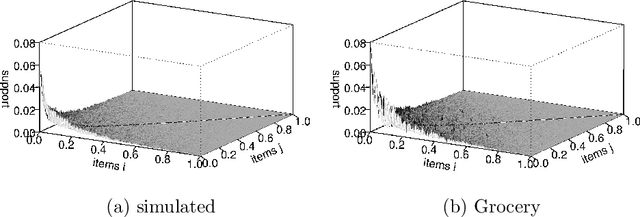Kurt Hornik
New probabilistic interest measures for association rules
Mar 06, 2008



Abstract:Mining association rules is an important technique for discovering meaningful patterns in transaction databases. Many different measures of interestingness have been proposed for association rules. However, these measures fail to take the probabilistic properties of the mined data into account. In this paper, we start with presenting a simple probabilistic framework for transaction data which can be used to simulate transaction data when no associations are present. We use such data and a real-world database from a grocery outlet to explore the behavior of confidence and lift, two popular interest measures used for rule mining. The results show that confidence is systematically influenced by the frequency of the items in the left hand side of rules and that lift performs poorly to filter random noise in transaction data. Based on the probabilistic framework we develop two new interest measures, hyper-lift and hyper-confidence, which can be used to filter or order mined association rules. The new measures show significantly better performance than lift for applications where spurious rules are problematic.
 Add to Chrome
Add to Chrome Add to Firefox
Add to Firefox Add to Edge
Add to Edge